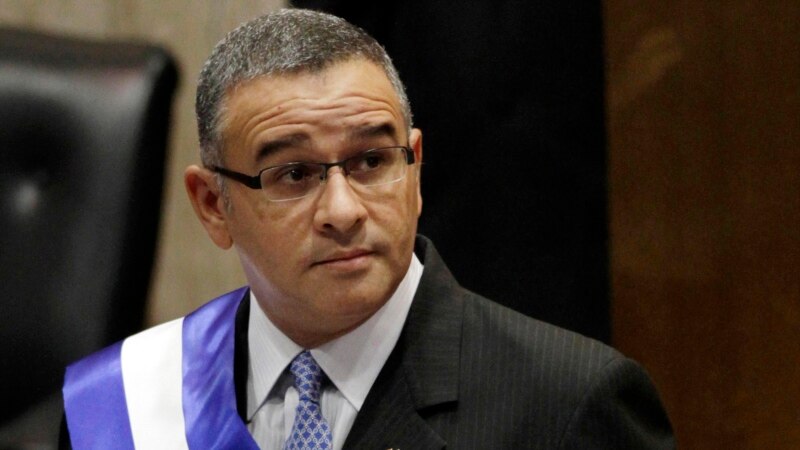
The Public Ministry of El Salvador asked a court on Friday to impose a 16-year prison sentence on former President Mauricio Funes for allegedly arranging a truce with the gangs to lower the homicide rate in exchange for benefits for their leaders confined in prisons.
Meanwhile, for his former General Security Minister David Munguía Payes, prosecuted in the same case, the Prosecutor’s Office requested a sentence of 20 years in prison.
Funes, who lives in Nicaragua under the protection of the government of President Daniel Ortega, who granted him nationality in 2019 to avoid his extradition, is not present at the trial. The ex-president did not name a defense attorney, so one was assigned to him ex officio.
A criminal reform approved in September 2022 allows trials to be held with defendants absent.
Funes (2009-2014) faces charges for the crimes of illegal grouping and breach of duty and, if found guilty, could receive a sentence of up to 16 years in prison. Munguía Payes, who faces the same charges, is added to the crime of arbitrary acts and could receive a sentence of up to 20 years.
From Nicaragua, Funes – who claims to be politically persecuted – rejected the accusations and said on his Twitter account that the trial “responds to a conspiracy logic.”
In the final arguments, the Prosecutor’s Office affirmed that “based on the evidence presented in the trial, the existence of the crimes that are imputed to the defendants has been verified” and requested the Specialized Sentencing Court to issue a sentence.
He assured that both officials omitted and exceeded their obligations and that they violated the security protocol. In turn, he highlighted that at least three witnesses recounted during the trial the meetings in prisons between the leaders of the Mara Salvatrucha gangs and the two factions of Barrio 18, with the knowledge of former president Funes and General Munguía Payés, which allowed the strengthening of those criminal groups.
Testimonials
The witnesses – among them the Catholic Bishop Fabio Colindres and the former Security Minister and former director of the State Intelligence Organisms, Ricardo Perdomo – said in the trial that Funes and General Munguía Payes were aware of all the details of the truce agreements. .
The bishop explained that the truce began in March 2012 with a meeting in the maximum security prison known as Zacatraz, where the gang leaders were being held, and that in the process they agreed not to attack each other and lower the homicide rates in exchange for benefits for they.
They asked to be transferred from the maximum security prison to common prisons, to be allowed intimate visits and the possibility of having cell phones, among other benefits.
After that meeting, the leaders were transferred to prisons where “their bases” were being held to explain the agreement to them.
The so-called maras or gangs have a presence in populous neighborhoods and communities in the country and are involved in drug trafficking and organized crime. They also extort merchants and transport companies and kill those who refuse to pay, according to authorities.
This is not the first case of alleged negotiations between Salvadoran officials and gangs. Journalistic investigations and United States authorities have also accused the government of current President Nayib Bukele of dealing with these groups.
the digital newspaper The lighthouse has published reports documenting alleged negotiations by Bukele administration officials with the three main gangs in El Salvador and an indictment by the United States Attorney’s Office against Mara Salvatrucha gang members, filed in federal court in New York, He pointed out two senior Bukele officials for having negotiated with the gang a reduction in homicides in exchange for alleged benefits between 2019 and 2021.
But neither in El Salvador nor in the United States is there a formal accusation directed specifically against officials of the Bukele government.
Homicides fell in El Salvador during the Funes government but the numbers rebounded when the truce was broken in 2013 after the removal of Munguía Payés. The new authorities withdrew benefits from imprisoned gang members.
Connect with the Voice of America! Subscribe to our channel Youtube and activate notifications, or follow us on social networks: Facebook, Twitter and Instagram.




![[Img #74675]](https://thelatestnews.world/wp-content/uploads/2024/12/They-discover-a-new-class-of-X-ray-sources-in-the-150x150.jpg)








